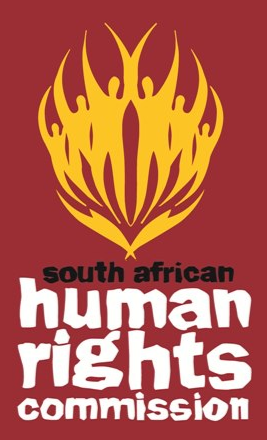Welcome to the SAHRC’s Webpage which contains our Electronic Database of Report Recommendations issued by the SAHRC. Here are a few FAQ (Frequently Asked Questions) that will help you to understand the electronic database so that you can make use of it to hold government and business accountable for implementing human rights.
We welcome any feedback or questions you might have on the electronic database or any of the SAHRC report recommendations. Please feel free to contact the following SAHRC officials for more assistance:
Strategic Support and Governance (SSG) Unit
Head of SSG Unit
Mr Siyasanga Giyose sgiyose@sahrc.org.zaThe SAHRC is required to conduct research and investigations on human rights issues. This requirement is set out in the SAHRC Act 2013. As part of the research conducted and investigations held on human rights violations, the SAHRC produce reports which include findings and recommendations. Depending on whether recommendations are issued based on research findings or conferences held or through legal investigations, recommendations are monitored by the SAHRC to determine whether government or businesses (or any other organization or individual) are adhering to the recommendations.
The electronic database of SAHRC Report Recommendations is a repository (storage) of all SAHRC Reports issued with recommendations from 2019 to date.
The electronic database provides users with information on reports issued by the SAHRC, a list of all the recommendations contained in the reports, and who the respondents (either government department, private businesses or individuals) are and what they are required to do in order to protect human rights.
The SAHRC has developed the electronic database so that members of the public can be informed of the work that the SAHRC is doing to protect and advance human rights.
The electronic database is a tool to hold respondents accountable for any violations of human rights and to encourage the advancement of human rights in South Africa.
The electronic database can be used by anyone who is interested in supporting the work of the SAHRC in holding respondents accountable for human rights.
Users (members of the public) can download reports and recommendations issued by the SAHRC. In addition, users are able to generate reports which show what recommendations have been implemented over the years. As an accountability tool, users will be able to use information from the database to advocate for the advancement of specific human rights.

SAHRC
The Commission was inaugurated on 02 October 1995 under the Human Rights Commission Act 54 of 1994 and as provided for by the Constitution of the Republic of South Africa Act 200 of 1993. The Constitution is the highest law in the country and it was adopted to heal the divisions of the past and establish a society based on democratic values, social justice and fundamental human rights. These rights are listed in the Bill of Rights, in Chapter 2 of the Constitution.
- Website : https://sahrc.org.za/
- Switchboard : (011) 877 3600
- Telephone : 082 059 6520
- Support: GautengComplaints@sahrc.org.za